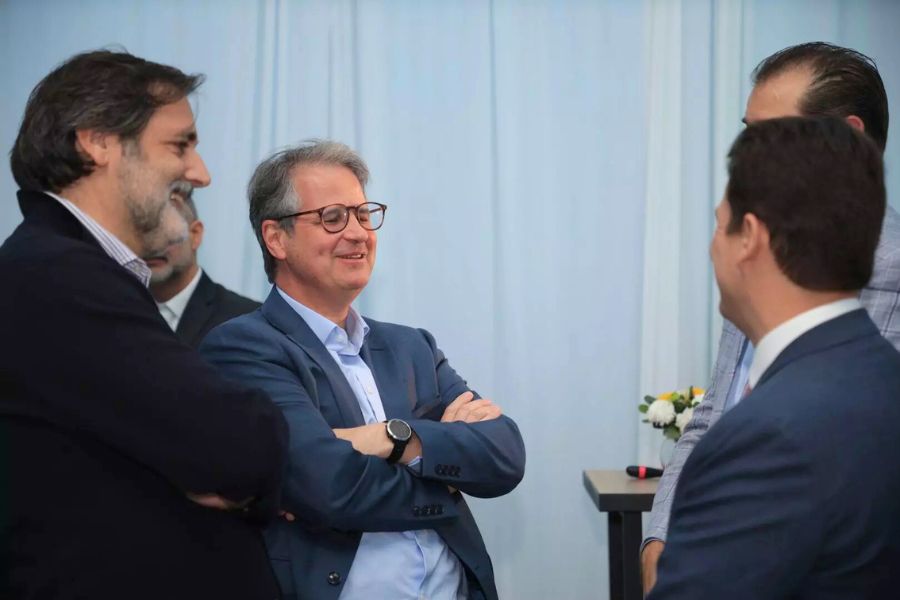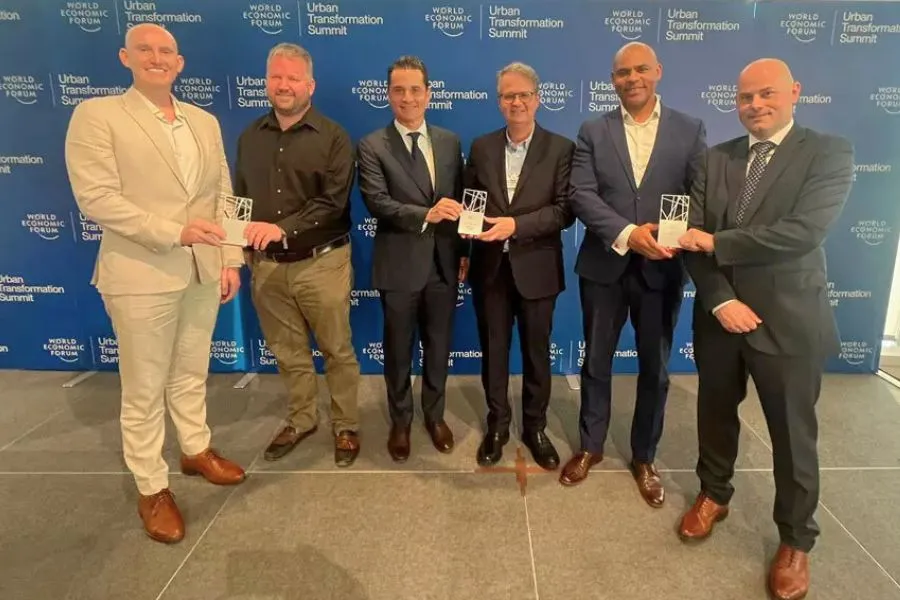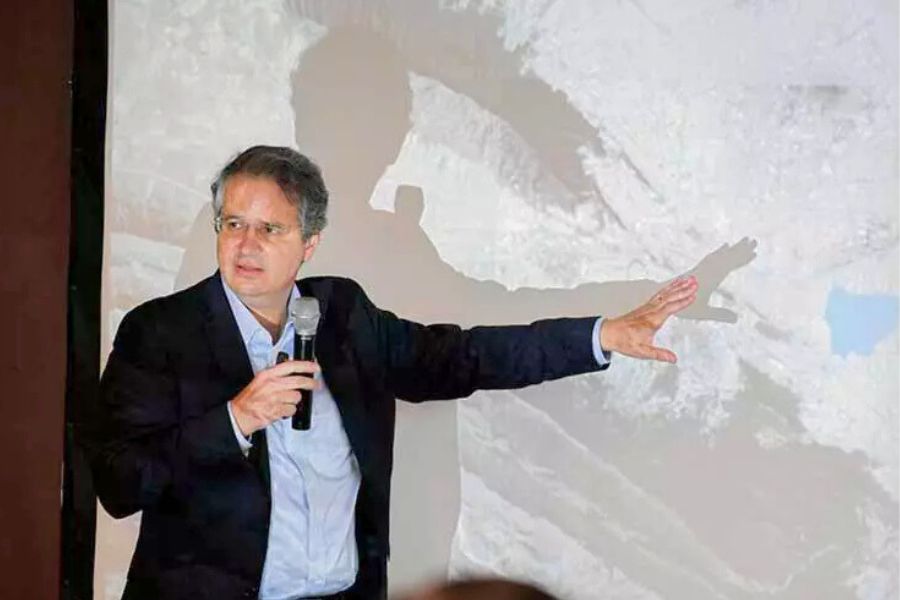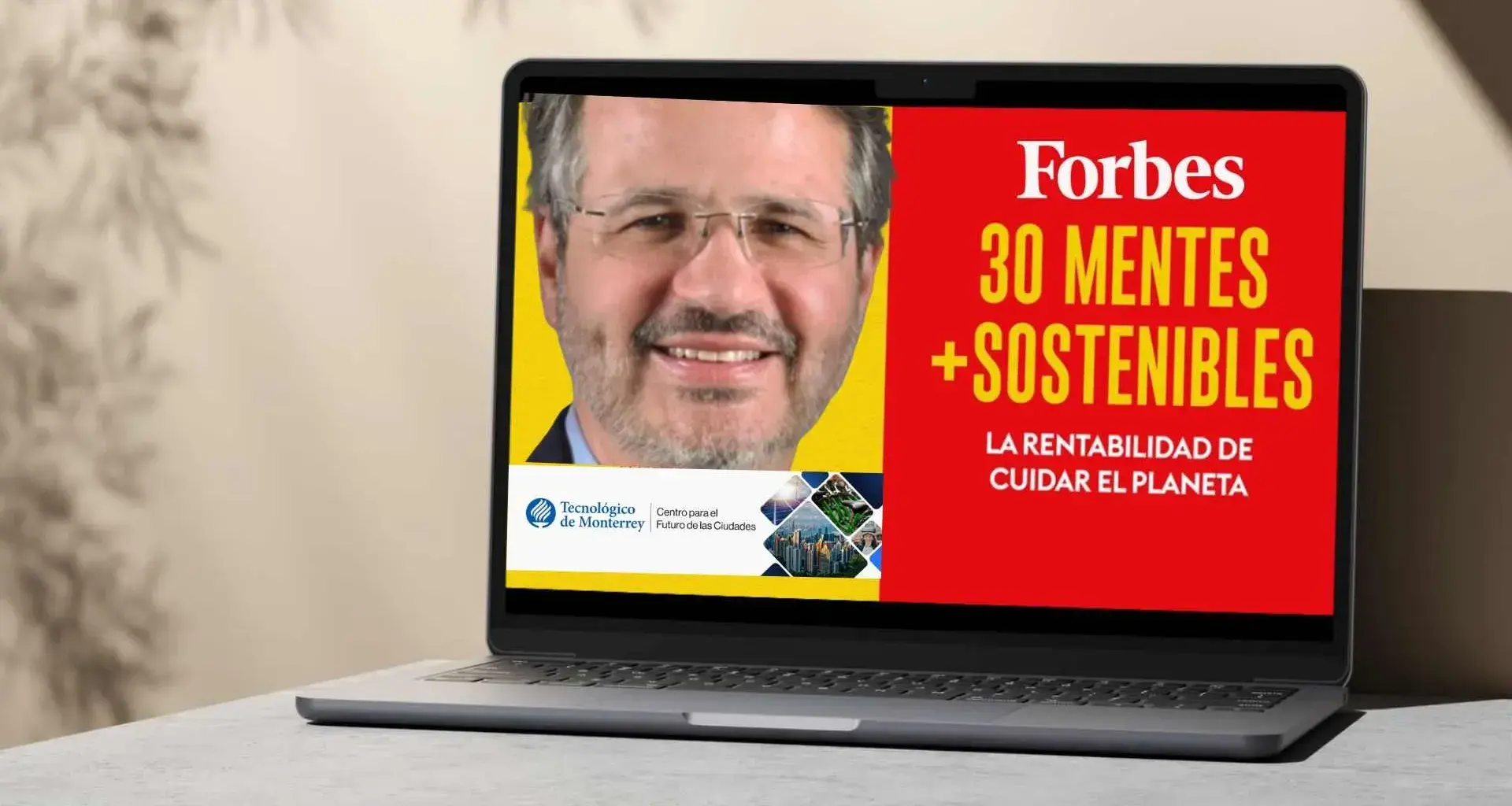José Antonio Torre, Director of the Center for the Future of Cities at Tec de Monterrey, has been featured in Forbes Mexico’s annual list of the 30 most sustainable minds in the country.
According to the publication, this list aims to recognize Mexican figures who have promoted sustainability within their areas, both inside and outside the country.
According to Torre, featuring on this list reflects the combined efforts of his team and the Tec community.
“This recognition isn’t only a personal achievement but is also a result of the collective work done at Tecnológico de Monterrey, the Center for the Future of Cities, Ruta Azul, etc.,” Torre said.
“It’s an honor and a surprise to know that (Forbes) recognizes this trajectory, and above all, this series of actions related to sustainability issues, energy, stream recovery, water recovery, which I have helped to manage,” he added.

Torre’s sustainable leadership is multi-faceted
Torre defines his “green” leadership as an approach that integrates sustainability into all his work operations and visions, even before he took the helm of the Center for the Future of Cities.
The director highlights that his persistent vision throughout his career has been for sustainability not to be addressed as a specific area but as a fundamental part of any initiative.
“Sustainability should not be unrelated to daily activities and action plans but should be a fundamental part of what we do,” highlighted Torre, who holds a degree in Industrial and Systems Engineering from Tec de Monterrey.
“Every project, whether related to mobility, housing, or urban planning, should ideally have an environmental focus, aiming to generate fewer emissions and improve the quality of life of communities,” he added.
Torre pointed out that his role as a leader is to be a “connector,” facilitating the progress and execution of environmental projects, from mobilizing resources to effectively communicating the results and progress of the initiatives.
Similarly, the director highlights the importance of collaborating with other ecosystem stakeholders, such as government agencies, companies, organizations, and the general public.
“Although the human mind isn’t built to think long-term and functions on the premise of ‘I act now and expect an immediate result,’ we can make progress on issues such as air or river pollution, which we’re not going to clean up immediately,” he explained.

Sustainability from the city and its community
According to the Forbes listing, Torre’s style stood out for research, design, and implementation of best practices in planning, managing, and promoting the city’s role as a sustainable platform.
Torre said that two examples of this vision and leadership have been seen in Center for the Future of Cities initiatives such as distritotec and Arroyo Vivo.
Arroyo Vivo is a Center for the Future of Cities initiative that aims to revitalize one of the bodies of water that crosses the Monterrey metropolitan area.
During the 2024 Urban Transformation Summit, Torre highlighted how urban transformation projects such as distritotec have flourished thanks to the combined efforts of public, private, and community stakeholders.
Aiming to create more sustainable, humane, and prosperous environments in cities, Torre’s green vision highlights, first and foremost, that the community and the environment are not separate entities but are moving in the same direction.
“I think this has been a pillar in my career, visualizing how initiatives like distritotec or La Campana, at the end of the day, are projects that try to activate the community’s power to transform,” he said.
“It’s about generating that spark in people and transmitting it to a community process capable of moving and transmitting it to others to improve their territory, their community, their neighborhood, etc.,” he said.
This vision has also filtered into initiatives such as Arroyo Vivo, where, beyond cleaning up the creek, Torre highlighted the idea of generating a model or prototype based on documenting lessons learned for sharing and replication.

From cities to a culture of democratic sustainability
In addition to promoting the role of the city as a platform for sustainability, the Forbes list highlighted the work of these 30 minds based on the pillars of the 2030 Agenda: Peace, Prosperity, Planet, People, and Partnerships.
Torre’s sustainable leadership has been based on the ability to share the knowledge acquired in the projects he has led to democratize information and thus maximize its impact and create collaborative networks.
“These issues are fundamental, not only for our future but also for our livelihoods. (...) I believe that we all have to get involved because the social, environmental, and economic costs are a reality today,” he said.
“At the Center, we’re creating platforms to share information about cities broadly and publicly so that you can access this data more easily and cheaply,” he remarked.
Similarly, highlighting the work of partners such as the Ruta Azul team, Torre explained that the cultural pillar has been vital to building and strengthening a community culture that shares these responsibilities.
“The new generations need to be aware of their responsibility towards the environment(...) It is also necessary for educational organizations to consider this issue a priority in educating children and young people,” he said.
Forbes’s 30 most sustainable minds
According to the publication, this selection of the 30 Most Sustainable Minds in the country aims to recognize individuals who have promoted sustainability-related issues in their respective disciplines.
The selection is based on organizational nominations and research on nominees’ national and international recognition.
It also considers whether those shortlisted have received awards or been included in other official lists on sustainability and the environment.
According to Forbes, some of the criteria used to determine the 30 personalities that appeared on the final list were:
- People who contributed to the accomplishment of the 2030 Agenda.
- Additional indicators highlighted by each organization for selection.
- Establishing the best balance when selecting profiles to consider the pillars of peace, prosperity, the planet, people, and partnerships.
- Sectors represented: private enterprise, activists, academia, civil society, and international organizations.
ALSO READ


